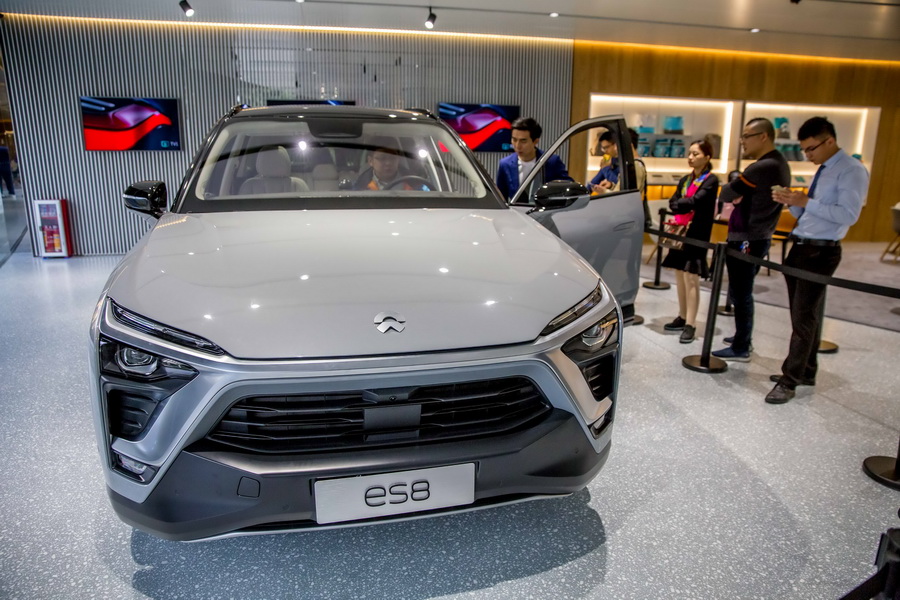China's brands strive for tech edge
By Hao Yan | China Daily | Updated: 2018-02-26 10:42

Experts: Domestic automakers must grasp opportunities, make most of latest market trends, Hao Yan reports.
Chinese automotive experts have highlighted the need to react quickly and seize market trends to meet customer demand if domestic automakers are to capitalize on opportunities to lead future global development in the industry.
Nine Chinese automakers joined hands on Feb 5 in Beijing to proclaim their brands' strong rise through synergies in innovation and transformation, to carry their responsibilities for the future development of the industry.
Attendees at the recently held China EV100 2018, a non-government, non-profit forum discussing the future of electric vehicles, said that many Chinese auto brands are embracing the opportunity to grow via developing new technology that can help revolutionize business models in the domestic market.
"A new technology, bred domestically or abroad, is more likely to realize profitability, and competitiveness in commercial application in China," said Liu Shijin, vice-president of the China Development Research Foundation, who attended China EV100 in January.
Zhang Baolin, chairman of Chongqing Chang'an Automobile Co, shared a similar point of view and said that Chinese automakers are exploiting the advantages of integrating new business models in the current evolutionary market climate.
"Conventional Chinese car makers and new players who have joined the race are cooperating with each other in research and development and production," Zhang said earlier this month at the China Automotive Brands Development Summit in Beijing.
Anhui Jianghuai Automobile Co, or JAC Motors, is one example of a domestic manufacturer that has shifted its business model towards the future and is developing into the new automotive business environment.
JAC Motors joined hands with German automaker Volkswagen AG in November last year to develop and sell commercial vehicles powered by both combustion and new energy power trains in a 50-50 joint venture in Hefei, capital of Anhui province, where JAC Motors is headquartered.
"We are integrating our resources in our joint ventures," said Xiang Xingchu, president of JAC Motors. "Both parties use their products and technologies in an equal way to better support development and further help the upward climb of JAC's brands."
The Hefei-based car maker has also worked with Nio Auto, a Shanghai-based developer of high-performance electric vehicles. The two companies have built a production plant to manufacture the electric sports utility vehicle, Nio ES8, which is set to roll off the production line in the first half this year.
Chairman of Nio, William Li, said the domestic market and supply chain are the key foundations for the Chinese brands to turn their dreams into reality.
Taking advantage of the world's largest car market has helped Chinese brand automakers to set a blistering pace of development and gain a strong foothold. Local branded cars accounted for 43.9 percent of the domestic market last year, up 0.69 percent.
More than 10.8 million local-brand vehicles were delivered last year, 3 percent more than in 2016, similar to the overall market's annual growth rate of 3 percent, according to the China Association of Automobile Manufacturers.
Chinese automobile brands are developing right here in the world's largest auto market, and that has helped bolster the already robust local automotive supply chain, said Liu from the China Development Research Foundation. "Chinese auto brands are competing side by side with their international peers. Despite being weak in some areas, Chinese car makers are ahead of the world in other areas," he added.
Having accurate insights into Chinese customer demands is just one of the advantages enjoyed by domestic auto brands, since these companies have devoted themselves for a long term to the market patterns and consumer preferences, according to Zhang at Chang'an.
"We seize the market trends better, so Chinese brands are well-equipped to meet the demands of Chinese customers," Zhang said.
























